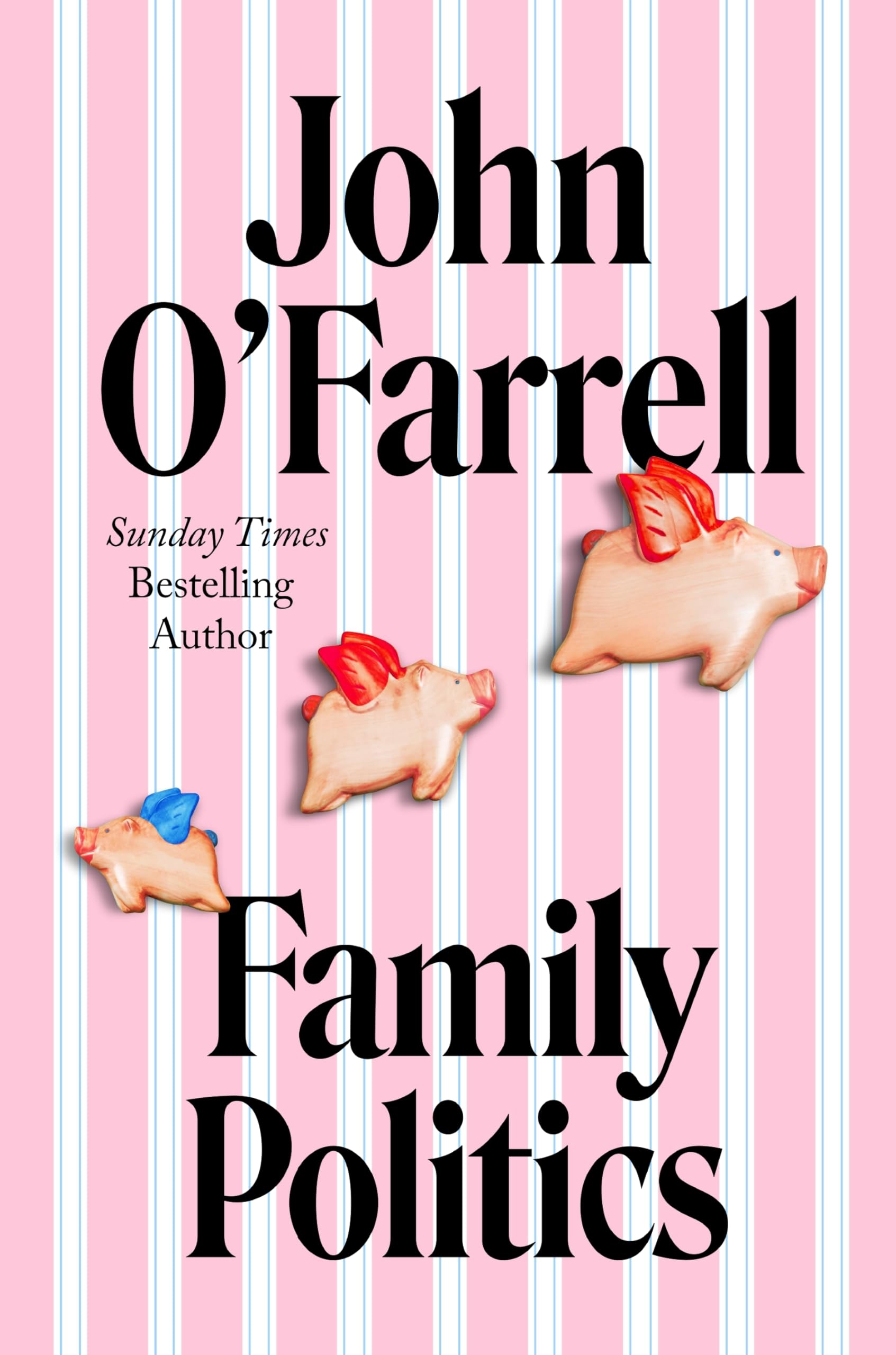
Rating: ★★★★★ (5/5)
Author: John O’Farrell
Genre: Contemporary Comedy / Family Drama / Political Satire
Ideal For: Readers who enjoy character-driven laughs, thoughtful explorations of generational divides, and stories about families caught amidst cultural change.
Why I Picked Up Family Politics
With echoes of O’Farrell’s hilarious political memoirs (Things Can Only Get Better), Family Politics comes at a moment when our personal and political identities are more entwined—and more volatile—than ever.
The premise alone—a university-aged son revealing he’s joined the Conservatives in a household of lifelong Labour supporters—felt both timely and ripe for comedy. Mixing his sharp satirical eye with affectionate character work, O’Farrell promises a story both funny and sincere. The result is a book that’s as heartwarming as it is hilarious.
Plot Summary (Spoiler-Free)
Emma and Eddie Hughes are the kind of left-wing stalwarts who lead council marches and argue Brexit at dinner parties. Their son Dylan returns from university, leading them to expect a declaration of coming out—only to find he’s deeply embraced Conservative politics. With a local by-election on the horizon (the incumbent Tory MP is in a coma), Dylan joining the opposition becomes a familial—and political—crisis of Shakespearean proportions.
Set in Hastings, the narrative fluctuates between Emma’s increasingly fraught diary entries and Dylan’s own contributions, resulting in a multi-layered portrait of a family—and a society—struggling to stay close in an age of cultural fracture.
Why Family Politics Works So Well
1. Sharp Social Satire
O’Farrell‘s comedic lens is finely honed. He skewers both political extremes: Emma and Eddie are portrayed with affectionate sharpness—Emma dons a “Never Kissed a Tory” tee, Eddie goes by “Red Ted”—while the Tory candidate is that caricature of opportunism. Yet even he grants the Conservatives some humanity, avoiding pure demonisation. It’s a hilarious yet human portrayal of ideological conflict.
2. Characters That Feel Like Real People
Emma’s shock and betrayal at her son’s political pivot are authentic; Dylan is earnest, thoughtful, not some straw-figure Tory caricature. As O’Farrell writes, it’s Emma’s “internal monologue”—on meeting her son’s fridge-first logic or his political cold shoulder—that highlights her deep-seated hurt. This isn’t just satire. It’s sincere character work.
3. Perfect Balance of Family and Politics
Stuffing the narrative with jokes about by-elections and culture wars doesn’t overshadow the family’s emotional core. The tension between parent and child, between personal love and political disagreement, is nuanced and universal. Thatcher-era grandkids miss the forest for the culture wars; parents are left wondering where to go from here. The book shows how political divides run deep in personal lives—and still leave room for love.
4. Bringing Humour to Cultural Friction
O’Farrell’s comic timing shines in everyday absurdities: Emma imagining Dylan brainwashed by a Tory cult, or a bottle of sparkling wine placed in the fridge for the wrong kind of “coming out”. These comedic beats land hard, making the pain of disagreement tolerable—even laughable.
Where It Might Not Land for Everyone
1. Tonally Familiar Territory
If you’re not into polite political satire or family comedy, Family Politics might seem mild. The plot is less about high drama and more about internal rifts and emotional recovery—some readers might find it too light on suspense.
2. Predictable Arc
Dylan’s return, ideological clash, and eventual softening follow familiar narrative beats. Some critics note the story “goes off the rails” mid-plot, with laughs fading when the situation becomes too cartoonish. That said, many still found the payoff—a plea for understanding—to be heartfelt and timely.
You’ll Love This Book If You Enjoy…
- Bridget Jones’s Diary style family warmth and humour
- Political satire with empathy—rather than pointed mockery
- Breaking bread with characters whose politics don’t define their humanity
- Fiction where generational divides are healed with coffee and conversation
Final Thoughts: Warm, Wise, and Wildly Relatable
In a time defined by echo chambers and outrage culture, Family Politics is a delightful reminder that people—even those we love most—can surprise us. O’Farrell’s genius is not just in his humor, but in his refusal to reduce people to labels. He shows how love can bridge political divides, not through sloganeering, but through listening. The message—political moderation and empathy—feels radical, and entirely necessary.
This is my five-star read for families divided by ideology, for those seeking warmth amid political tumult, and for anyone who believes laughter might just be the bridge we need.


